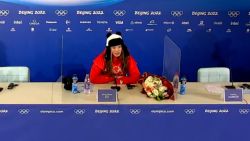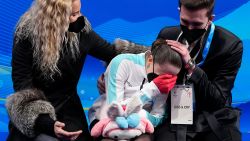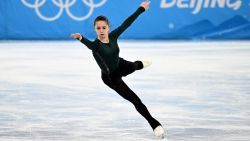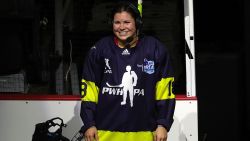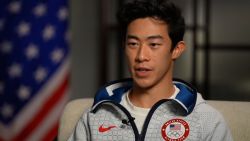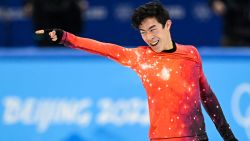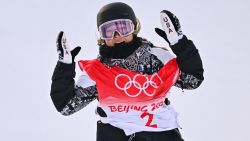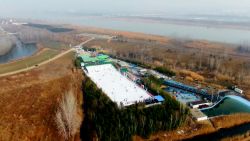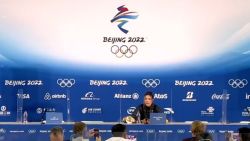Story highlights
Winter Olympics opening ceremony is Friday
Russians competing as "Olympic Athlete from Russia"
North and South Korea combine in ice hockey
Coldest ever Winter Olympics?
It will be cold and colorful, dramatic and dangerous, exciting and emotional – the 2018 Winter Olympics is set to burst into life in South Korea.
Some events have already begun, but an opening ceremony full of pride, passion, tradition and most probably a bit of politics will get the PyeongChang Games officially under way Friday.
Nearly 3,000 athletes from 93 countries are set to compete in a record 102 events across 15 different sports from February 9-25.
From the participation of Russian athletes in the wake of doping scandals, and icy Siberian winds potentially rendering it the coldest Games ever, to North Korea’s inclusion and free condoms, here are five things to know about PyeongChang 2018.
READ: Ones to watch in the Winter Olympics
READ: A bluffer’s guide to winter sports
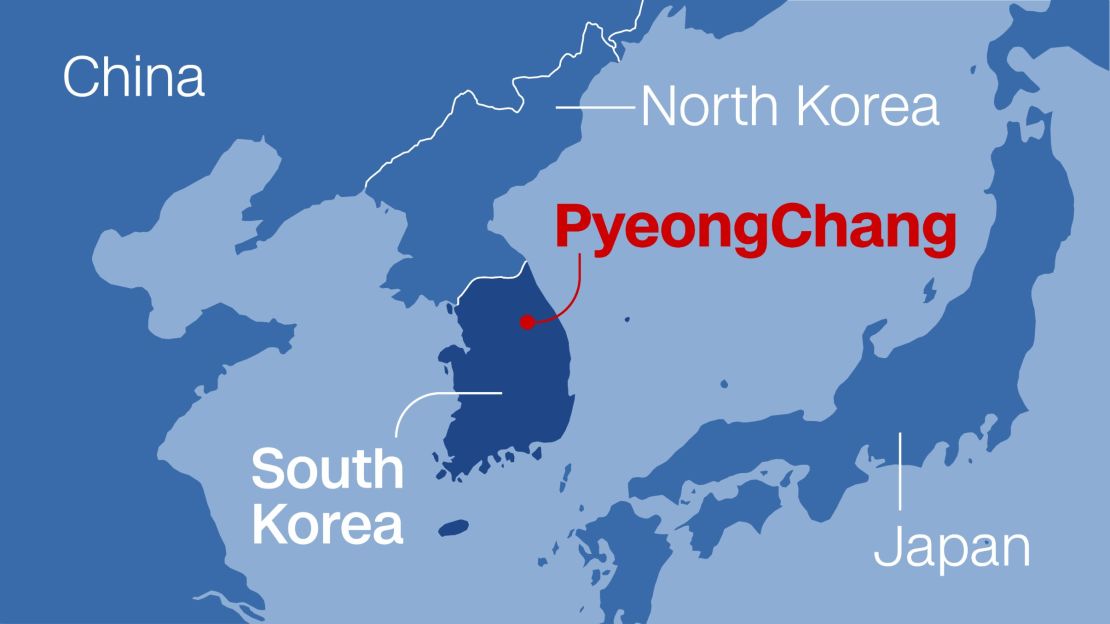
North Korea returns
When South Korea was awarded the Games in 2011, few would have predicted seven years later that close neighbor and bitter rival North Korea would be at loggerheads with a US president who happened to be the former star of a reality TV show.
And while US President Donald Trump and North Korean leader Kim Jong Un – who have publicly traded barbs – won’t be at the opening ceremony, US Vice President Mike Pence and Kim’s sister Kim Yo Jong will. That’s potentially awkward – Kim Yo Jong is officially blacklisted by the US Treasury Department.
Pence is being joined by the father of Otto Warmbier, a US student who suffered brain damage in a North Korean jail and died when he returned home last year.
READ: Does switching nations make you less of an Olympian?
North Korea is sending 22 athletes to the Winter Olympics to compete in ice hockey, ice skating and skiing – as well as a cheering squad. The nation wasn’t present in Sochi in 2014, but has been a regular at the Summer Games.
They will march together with the South Korea athletes at the Opening Ceremony under the Korean Unification Flag.
According to South Korea’s national news agency, it will be the 10th such occasion at an international sports event.
The countries will also unite in the women’s ice hockey with a combined team playing in blue jerseys emblazoned with “Korea” on the front. The unified team lost 3-1 to Sweden in a sold-out warm-up game Sunday near the capital of Seoul.
READ: Ligety in favor of North Korea inclusion
There is also a language divide – the languages are similar but not identical – with Korea’s Canadian head coach Sarah Murray trying to bridge the gap by formulating a three-page dictionary.
“They are all wearing the same jersey and we are on the same team now,” said Murray. “Hockey really does bring people together.”
‘Olympic Athlete from Russia’
Russia as a nation will not be present after the International Olympic Committee (IOC) instigated a ban in the wake of the McLaren report into state-sponsored doping, including at the 2014 Winter Olympics in Sochi.
Instead, 168 Russian athletes who were able to prove their clean credentials were invited by the IOC to compete as neutrals and individually will be known as “Olympic Athlete from Russia.”
They will wear a uniform with the OAR logo and will have the Olympic anthem played should they win a gold medal.
That number could rise depending on the latest judgement by the Court of Arbitration for Sport on more than 40 Russian athletes hoping to have their lifetime Olympic bans overturned.
However, this week the IOC refused to invite 15 Russian athletes and coaches despite CAS lifting their bans.
Barring a successful appeal, one of the most successful Olympic short-track speed skaters of all time, the South Korea-born Viktor Ahn won’t be allowed to participate.
READ: Last-ditch plea for 32 Russian athletes
No white elephant?
At every Olympics, it seems, stories abound about cost overruns, the future fate of stadiums and venues and whether that particular Games will break even. PyeongChang is no exception.
The cost of the Games is set to top about $10 billion, which includes the Olympic Stadium that will only be used for the opening and closing ceremonies.
The stadium is expected to be demolished when the Games are done, which at least means PyeongChang won’t have one of those white elephants, such as Montreal’s Olympic Stadium that was built for the 1976 Summer Games.
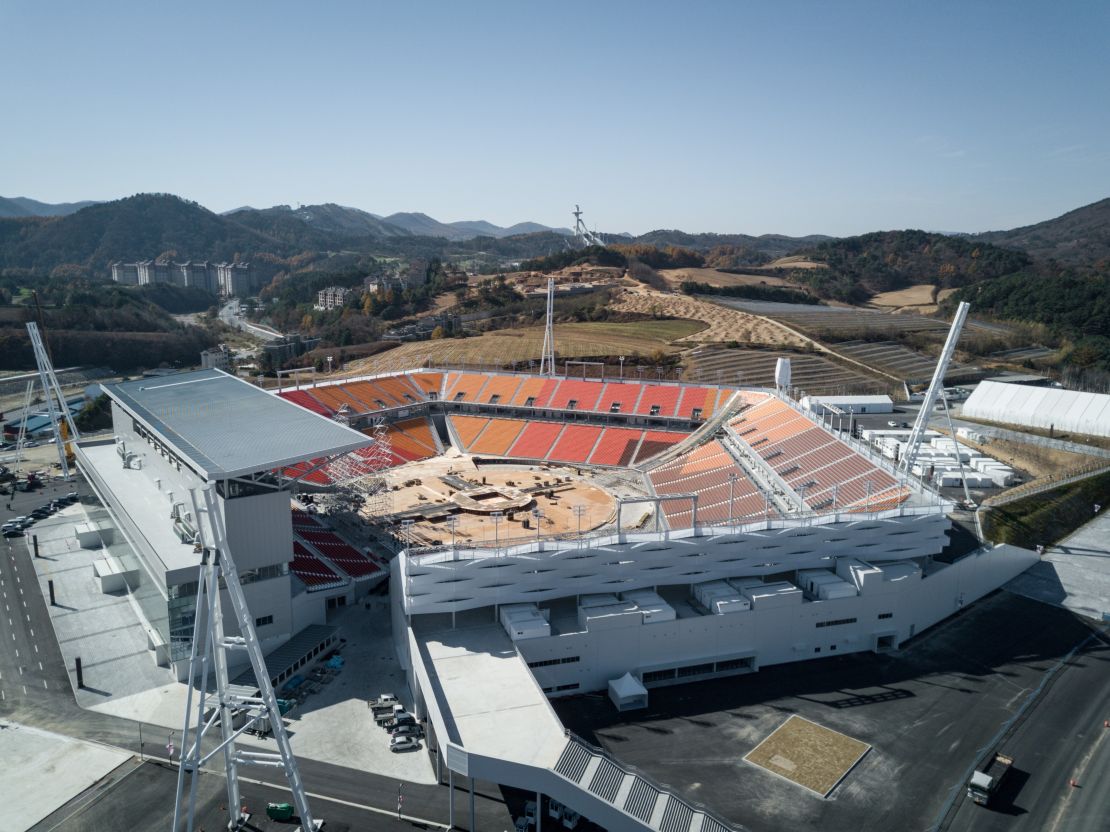
Plans to convert stadiums into schools in Rio after the 2016 Summer Olympics never materialized.
But if Brazilians are still waiting for the legacy of those Olympics to benefit them, former IOC president Jacques Rogge called Barcelona 1992, Lillehammer 1994, Sydney 2000, Beijing 2008 and Vancouver 2010 “success stories.”
Assessing London 2012, he wrote: “It may still be too soon to call them the greatest Games ever, but ask the same question again in 20 years and you might just get a ‘yes.’”
READ: Norovirus hits Olympic security guards
As of February 8, PyeongChang organizers said they had sold 856,000 tickets – 80.1% of the total.
“I expect to have around 150,000 people on the day of the opening ceremony and I anticipate around two million people to visit PyeongChang during the Olympics,” the mayor of PyeongChang County, Sim Jae-kook, told CNN.
The start of the torch relay on Nov. 1 plus the opening of a new high-speed train between Seoul and PyeongChang has helped, organizers added.
It will be cold!
While athletes are used to competing in the cold – be it outdoors or in – fans will have to find ways to keep warm at PyeongChang’s open-air venues.
At the opening ceremony – starting at 20:00 local time (06:00 EST) – the temperature is set to range between 28F (-2C) and 23F (-5C), according to the Korean Meteorological Administration’s news conference Wednesday.
There’s no roof or heating at the Olympic Stadium so attendees will be given blankets, seat warmers and hats.
The temperatures throughout the 17 days of the Games could make PyeongChang the coldest Olympics since Lillehammer, Norway in 1994, which experienced an unseasonably cold average high of 27˚F (-2.7˚C) according to Accuweather.
But if that doesn’t sound too bracing, you have to factor in the wind chill - freezing draughts blowing in from Siberia could regularly drop temperatures to as low as -13F (-25C).
“The Winter Olympics is supposed to be cold and I think we were able to host the Olympics because it’s so cold here,” said Sim.
READ: How Olympic downhill gold is a badge for life
A record will fall
If temperatures could be historic in PyeongChang, another record is also set to be broken. But this one has nothing to do with gold, silver or bronze.
Some 110,000 condoms will be distributed to the 2,925 or so athletes, 10,000 more than in Sochi and Vancouver.
It’s not unprecedented for all Olympic Games, though. At Rio in 2016, athletes were given 450,000 condoms, up from the 150,000 in London – although Summer Games do feature significantly more athletes.
READ: Winter Olympics to break condom record
Condoms were first publicly distributed at the 1988 Olympic Games in Seoul, South Korea, to reduce the spread of HIV. By Sydney in 2000, about 90,000 free condoms were given to athletes.




